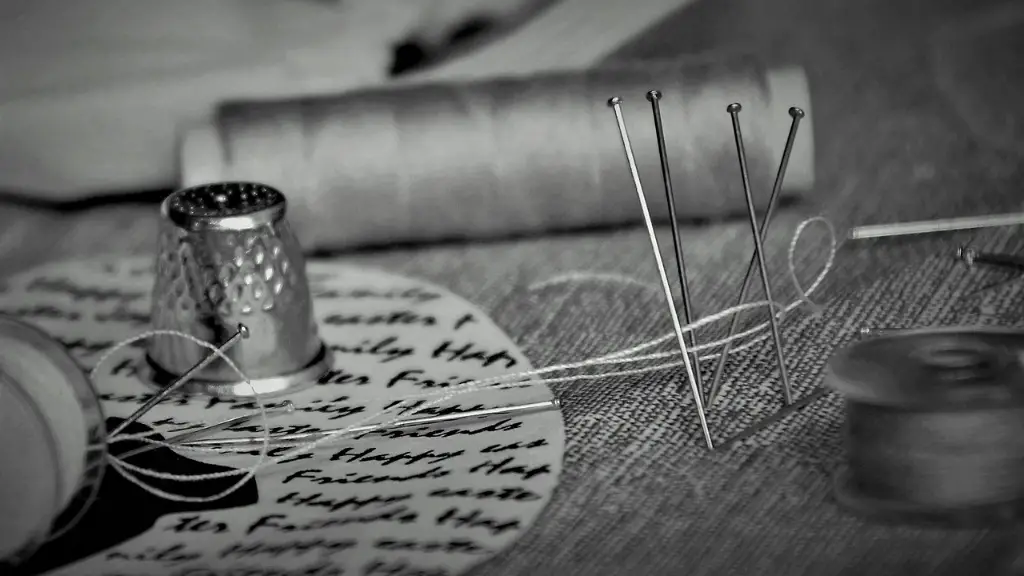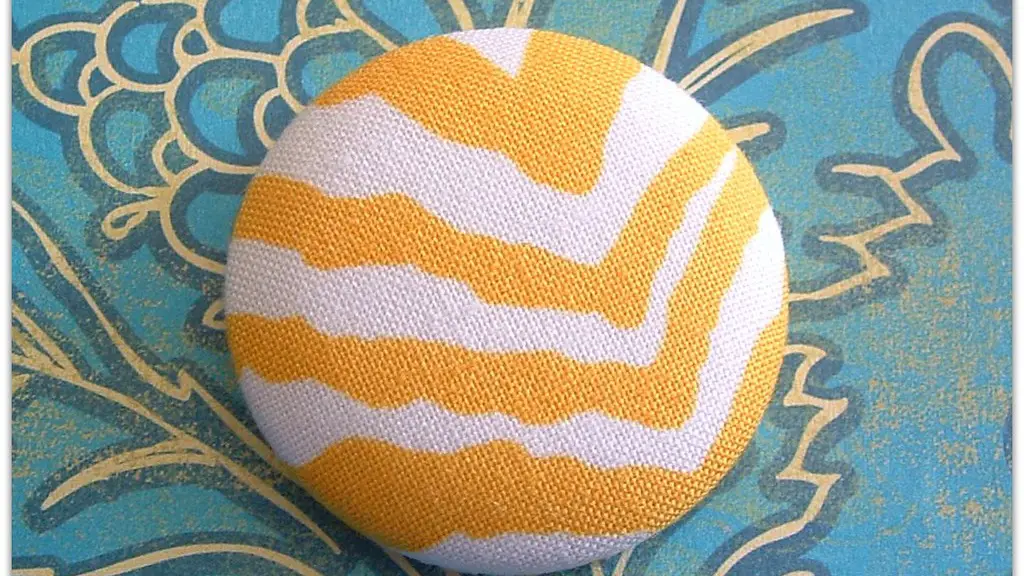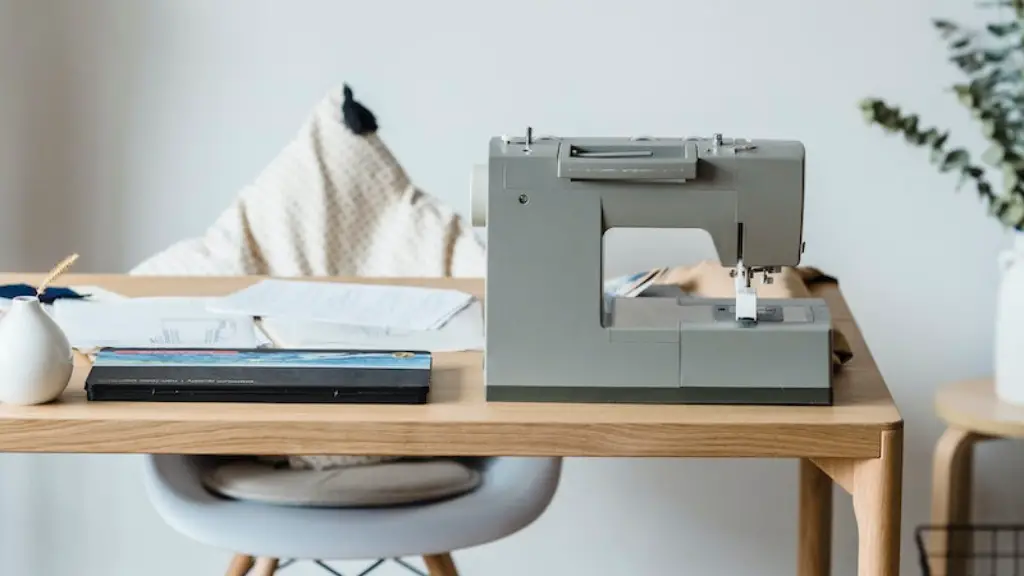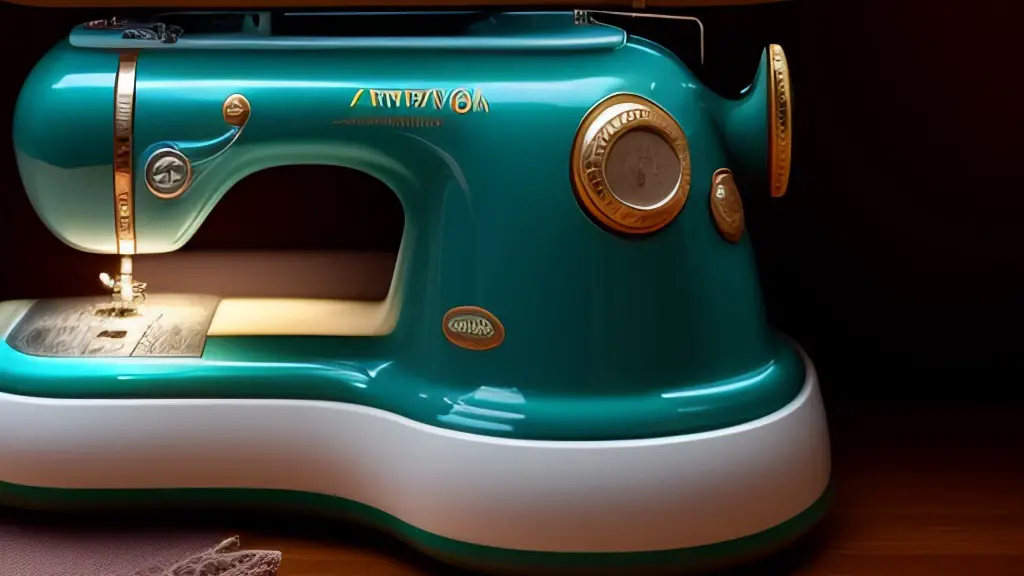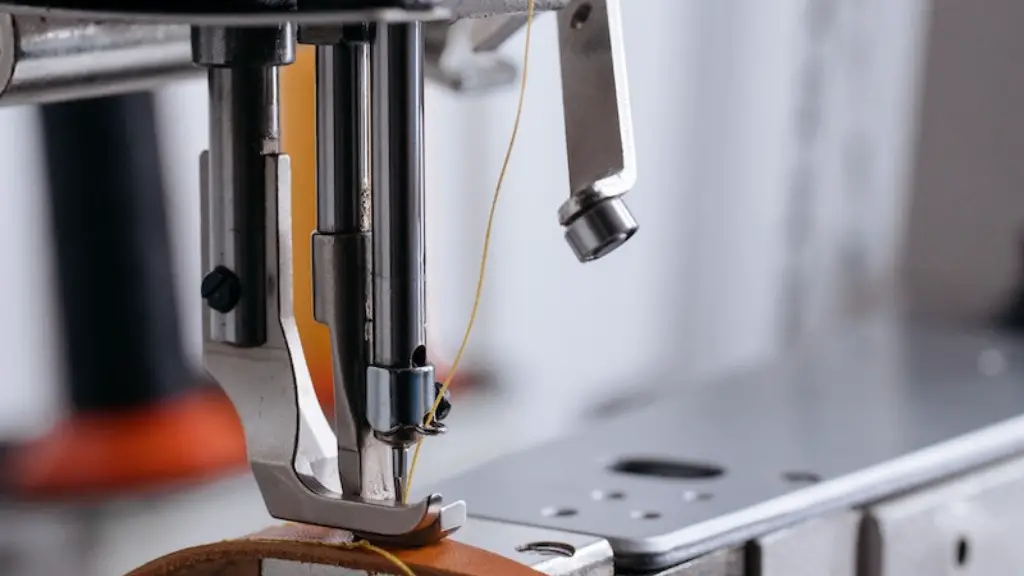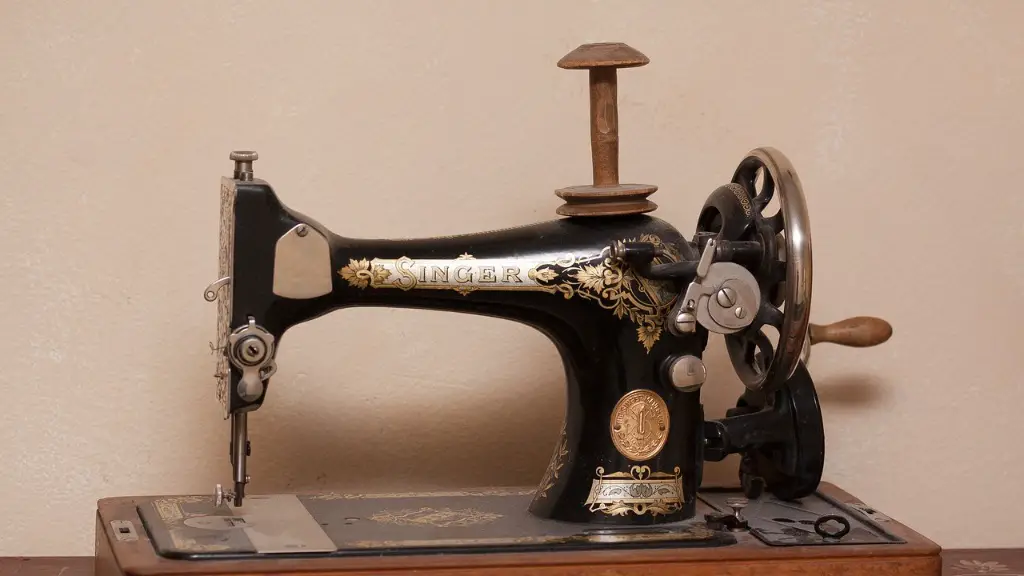Sewing machines are essential for projects ranging from handmade clothing, home decor projects, and repairs. The cost of a basic sewing machine varies depending on the features, functions, and brand. There are many brands on the market, and differences in features, accessories, and prices can be seen between different sewing machines.
When considering the cost of a basic sewing machine, a consumer can expect to pay between $100 and $400. Sewing machines in this price range tend to have fewer functions and may be designed more for basic projects. More advanced sewing machines, with more features, functions, and advanced technology, can cost upwards of $600.
In order to get the best deal, it’s important to shop around and compare prices between different brands. Additionally, many internet retailers may offer attractive promotional discounts or coupons that can help reduce the cost.
Experts advise consumers to invest in a good quality machine. Inexpensive models are typically not as durable or reliable as higher-quality machines. Investing in good quality will be money well spent in the long run. Additionally, the cost of repairs for higher-quality machines can often be less than for inexpensive models.
Consumers considering a basic sewing machine should submit the functions that are important for their specific use. Factors to consider include the type of fabric and material, the number of stitches and accessories, the type of thread and needles, ease of use, and more. Doing research and reading product reviews can be helpful in selecting the right sewing machine.
Another option for someone looking for a basic sewing machine may be to look for a used one. Used machines can often times be acquired at a lower cost and with the same features. However, if a used machine is purchased, be sure to check the condition and read reviews if possible.
Accessories
In addition to the initial cost of the machine, consumers may need to purchase accessories as well. Accessories for sewing machines range from small items like extra needles, sewing software, and thread, to larger items like cutting machines, extra bobbins, and storage bags. Depending on the project, the type, and number of accessories needed, the extra cost of accessories can add up quickly.
It’s important for buyers to consider what kind of accessories they will need for the type of project they plan to do. Additional supplies like fabric and thread are also needed, and the cost of these items should be taken into consideration when budgeting for a sewing machine.
In addition to the initial cost of the machine and the accessories, there are also the additional operating costs such as electricity, maintenance, and sewing supplies. These costs can add up over time, so this should be taken into consideration as well. Depending on the type of fabric and the amount of work being done, there may also be a need for special cleaners and lubricants.
Warranty and Support
It’s important to purchase a machine from a reputable company that offers good customer service, technical support, and a warranty. Depending on the model of the machine, a warranty may not be included, but it’s always worth checking to see if the company offers one. A warranty can provide peace of mind that any issue arising with the machine will be covered. Moreover, good customer service and technical support are essential for any issues that may arise with the machine.
When researching a machine, be sure to compare the company’s customer service, technical support, and warranty. These are factors that can help inform the decision about which machine to purchase.
Additionally, many companies offer free classes or tutorials to help customers get accustomed to their machines. Before purchasing, it’s advised to check the company’s website to see if they offer any kind of educational materials. Doing research and taking advantage of classes and tutorials will help the customer use their machines with confidence.
Summary of Essential Factors
When budgeting for a basic sewing machine, there are a few essential factors to consider. The cost of a basic sewing machine will depend on a variety of factors. Additionally, there may also be additional costs for accessories, operating costs, and supplies. It’s important to compare the quality between different brands and be sure to do research on customer service, technical support, and warranties offered. Lastly, many companies offer free classes or tutorials to help customers get accustomed to their machines.
Advice from an Industry Expert
Industry expert, Dave Lee, is the founder of SewPro, a company specializing in sewing machine repairs and tutorials. Dave has been in the sewing machine repair business for over 15 years. He provides insight into what to look for when purchasing a basic machine:
“When choosing a basic machine, look for one that meets your needs for now and for any future project. My best advice is to invest in a machine that has good stitches and that has also been built from good quality materials. Additionally, ensure that there is a warranty and good customer service available from the company in case something goes wrong.”
What to Consider before Buying a Basic Sewing Machine
Before making a final decision about a basic machine, consider a few crucial factors. It’s important to research the features and compare the prices of different brands. Additionally, buying a higher quality machine will mean more reliable use and more durable parts in the long run. Furthermore, make sure to factor in additional costs like accessories, operating costs, and supplies when budgeting for the machine.
If the consumer is looking for a used machine, it’s important to check the condition and read reviews if possible. Lastly, be sure to compare the company’s customer service, technical support, and warranty before finally choosing the right machine.
Alternatives to Buying a Basic Sewing Machine
When considering a basic machine, there may be alternatives to buying as well. Some companies offer various rental plans or subscription services that can allow access to machines for a specific amount of time. Additionally, for those who don’t have the space for a permanent machine, there may be options to rent a machine for a certain time or for a specific project.
For those who would prefer not to invest in a machine outright, an alternate option might be to take sewing classes or join a sewing group. These can provide access to machines and resources as well as offer instruction and help with projects.
Another option, is to borrow a machine from friends or family. This could be a great solution for those who plan to do occasional projects or who want to try out a machine before investing in one.
Conclusion
Though there are many factors to consider when budgeting for a basic sewing machine, such as accessories, operating costs, and supplies, the cost of a basic machine varies depending on features, functions, and brand. Doing research and reading reviews is essential, and it’s important to invest in good quality. There may also be alternatives to buying like taking classes and borrowing from friends or family. Considering these factors can help the consumer choose the right machine for them at the right price.
